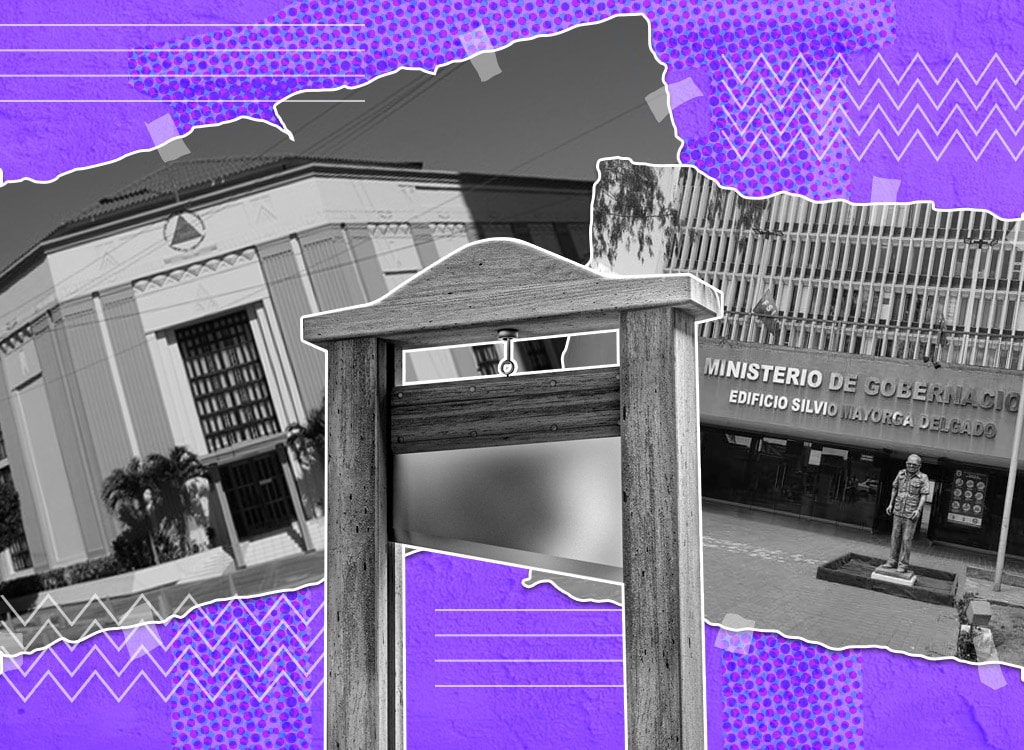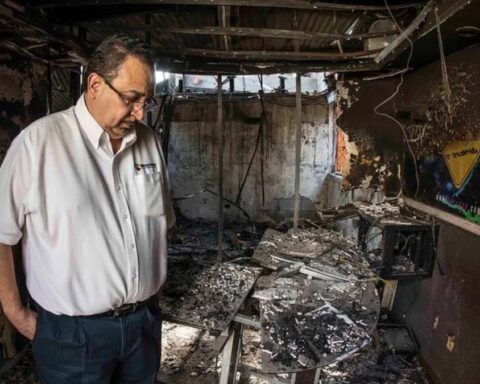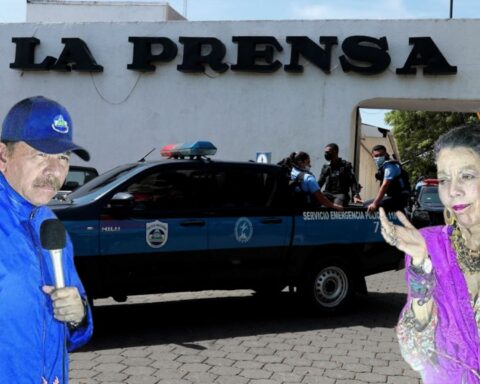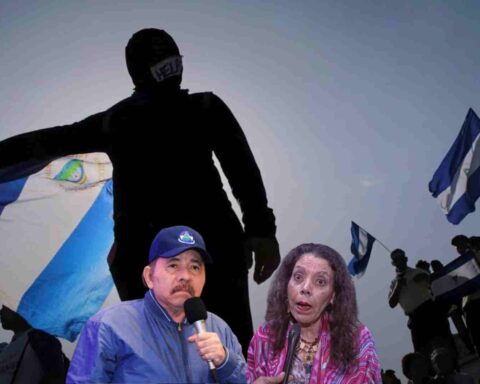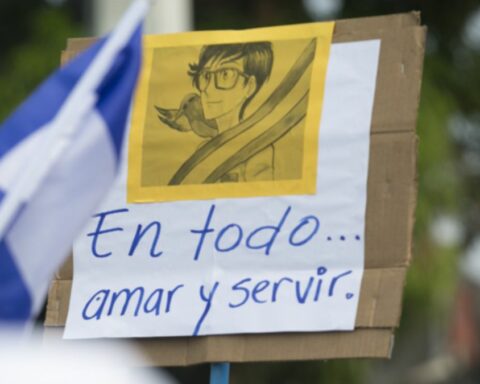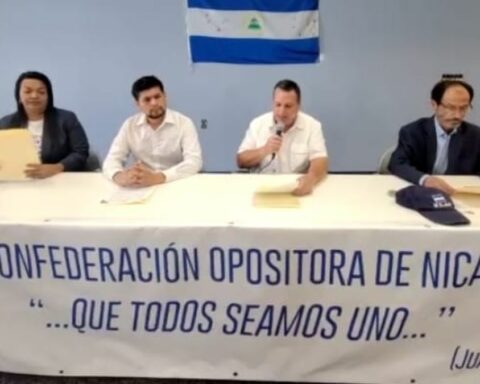In 2022, the regime of Daniel Ortega and Rosario Murillo eliminated the largest number of Non-Profit Organizations (OSFL) in the history of Nicaragua. The “cleansing” carried out through the Ministry of the Interior (Migob) and the National Assembly —dominated by the Sandinista Front— killed 3,108 NGOs, including 314 foreigners, between January 19 and December 9 of last year.
The massive beheading of NGOs intensified during the second half of the year. In the first six months there were 796 closures, 13 times more than those that occurred in 2021. However, in the following semester, the legal status and registration of operation – in the case of foreign ones – of 2,312 organizations were eliminated.
This massive closure was influenced by the reform of Law 115, the General Law for the Regulation and Control of Non-Profit Organizations, which gave Migob the power to eliminate legal status through ministerial resolutions.
In total, the dictatorship has annulled 3,182 NPOs, since November 2018. These organizations worked, for the most part, on issues of development, human rights, democracy, education, health, social projects, the environment, and also on religious evangelization projects.
44% of these NPOs had between eleven and twenty years of operating in the country, while another 41% reached three decades, reveals a statistical analysis of CONFIDENTIALbased on a proprietary database created with Migob resolutions published in the Official Gazette La Gaceta.
A projection of outlawed organizations —Red Local, Popol Na, Fundación del Río and the Nicaragua Human Rights Collective Never+—, determined that the regime has closed 43% of the 7,227 NGOs that existed in the country before the massive cancellations began.
Last October, an investigation by the Inter-American Dialogue estimated that at least one million Nicaraguans, who worked in NGOs or were benefited from social projects, were affected by the massive closure of these spaces.
The calculation is based on a case study of a sample of 53 NPOs. It also determined that they were executing projects for 41 million dollars, when they lost their legal status and operation registration. Meanwhile, 2,000 workers were left unemployed.
Last October, at least 18 organizations denounced before the Inter-American Commission on Human Rights (IACHR), “the systematic violation of freedom of association and the right to defend human rights in Nicaragua.”
Those most affected: women, indigenous peoples and children
The mass closure directly affected vulnerable groups. One of these was the women’s movement. At least 130 NGOs that provided support to victims of gender violence lost their legal status, according to data analyzed by CONFIDENTIAL.
The list of closed organizations also includes more than 30 that operated in indigenous towns, the poorest and forgotten by the national authorities. Likewise, NGOs that developed social projects that benefited communities without access to water, such as those carried out by the Humboldt Center.
35% of the canceled NGOs carried out development projects, which include the social, economic, press freedom, cultural and human rights fields. Likewise, there were organizations that had projects focused on children and adolescents.
A report of CONFIDENTIAL —titled “Young people in Nicaragua remain without a future and without a job— portrayed the stories of young people who worked for the sake of development, social projects and education, carried out by the “Tuktan Sirpi” Children’s Association or the “Cuculmeca” Education and Communication Association. from Jinotega.
In the list of more than 3,000 closed NGOs, there are at least 92 that focused on pro-environment and were even in charge of protected areas such as Fundación Cocibolca, which co-managed the Mombacho Volcano nature reserve.
Last September, the environmental activist Amaru Ruíz pointed out that with the closure of these spaces, there were no longer any independent environmental organizations in the country and “those that still operate are national and international organizations that have been co-opted by the regime, as in the case of Flora and Fauna International”.
Likewise, among the 3,182 organizations eliminated since 2018, there are at least 140 that had a focus on health. The case that caused the greatest impact in 2022 was the closure of Operación Sonrisa, which promoted surgeries in children with cleft lip and palate. This program benefited some five thousand children and adolescents during the 27 years they were in Nicaragua.
The building where Operation Smile worked was confiscated and converted by the regime into a museum. An investigation of CONFIDENTIAL concluded that at least 67 properties owned by civil society organizations and the media were raided manu militari.
Of the 67 confiscated properties, 29 were occupied by Sandinista operators -or representatives of State institutions-, 13 were assaulted and raided by the Police, breaking locks and padlocks to enter; In four cases there was only a search by police agents, but they did not find assets because the organizations had already removed their documentation and office equipment, anticipating that they would be occupied, revealed the investigation.
More than 300 foreign NGOs
The closure of foreign NGOs began in August 2021 and worsened in 2022. In total, the regime eliminated the operation registration of 341 NPOs. 42% of these came from the United States, 13.4% from Spain, 7% from Italy, 5% from Germany, and 4% from Costa Rica.
Likewise, there were organizations from France, the Netherlands, Canada, Austria, Panama, England, Denmark, Mexico, Honduras, Luxembourg, Switzerland, the United Kingdom, among others.
A source linked to international NGOs revealed to CONFIDENTIALwhich in October 2020 was carried out an evaluation of the impact of the cooperation channeled almost 30 organizations of foreign origin.
“The evaluation is partial, because only 27 international organizations provided information,” said the source. “Between these 27 international NGOs, they channeled 25.5 million dollars a year in cooperation with Nicaragua that directly reached 550,000 people, especially in rural areas,” she added.
The Migob assures that the closure of these spaces, which violates the right of association in Nicaragua, is due to the fact that these organisms “failed to comply with their obligations (…) since they did not report for periods of between two to 29 years, their boards of directors, financial statements with breakdowns of income and expenses”. Likewise, for not detailing the name, identification, address and telephone number of all its donors.

